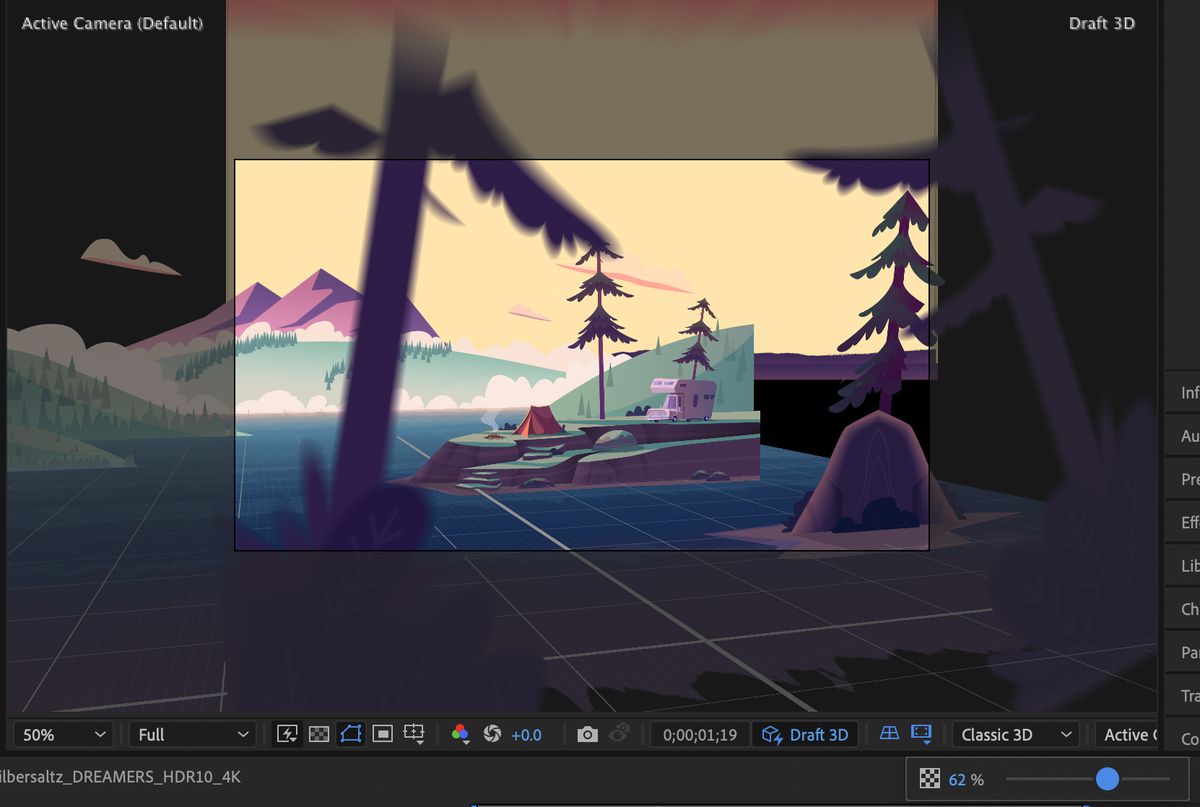Adobe announced on Tuesday that Creative Cloud subscriptions will now include Frame.io, its software made for collaborating on video projects. It’s building the software into the latest versions of Premiere Pro and After Effects, which have some updates of their own — the company gave its video editing software a visual refresh, and its compositing software will finally be Apple Silicon native.
Adobe bought Frame.io last year, so including the service in its video editing subscription makes sense. Frame.io makes collaboration easier for remote editors by letting them quickly download footage or audio captured on set or location and easily share draft edits for comments or approval. The Frame.io subscription included with Creative Cloud will give users 100GB of cloud storage they can use to share media files with a collaborator.
Since it’s bundling Frame.io with Creative Cloud, Adobe’s also building it into the new versions of Premiere and After Effects. Users will be able to sign in to the service using their Adobe IDs and start using it in their editing software without having to install a separate plugin. At the moment, this integration isn’t bringing a ton of new features — you’re still able to export your timeline for people to review, download files from the cloud, and see comments from within Premiere, all features that were available with a plugin. But it’s easy to imagine Adobe expanding its abilities in the future now that most users will have access to it.
Along with the Frame.io integration, Adobe has also redesigned a few aspects of Premiere Pro, changing the import and export screens to make them easier to navigate and more visually pleasing. While the update isn’t bringing huge functionality changes, it should be a breath of fresh air to people who spend all day in the software. “Premiere has looked the same for a very, very long time, and any new UI stuff outside of the loading screen when you launch is exciting,” said Becca Farsace, a video pro at The Verge. There’s also a new header bar that lets you easily access the new import and export modes and change which workspace you’re using.
Adobe also added automatic color correction to Premiere, which could be helpful to new creators. It calls the feature Auto Color and says it can work as a “first pass” by adding a Lumetri effect onto your clip and setting the sliders where it thinks they should be. If you disagree or want to refine its decisions, you can do so without undoing the other color tweaks it made.
Adobe also announced that the latest version of After Effects, which will start rolling out on Tuesday, will be up to three times faster on M1 family-powered Macs, thanks to the native Apple Silicon support.
The compositing software is also getting a few quality-of-life improvements: when you’re using Draft 3D, you’ll be able to see what 2D or 3D layers look like outside of the frame, whereas before, you’d only see an outline showing you the object’s boundaries. It’s also getting Premiere’s scene edit detection, which lets you drop in a video and have it automatically split into a new layer wherever there’s a cut. If you don’t want to end up with 50 layers, you can also have After Effects add markers to show you where the cuts are instead.

